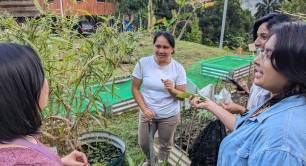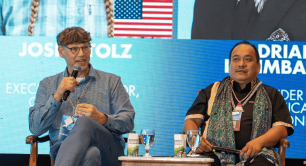‘Rural is cool’: How social enterprise can help rural communities thrive
The importance of community ownership, restoring community self esteem, how storytelling can help keep young people in rural areas – and more: the most interesting ideas and insights Pioneers Post heard at the Rural Social Enterprise Gathering 2025.
Rural social enterprises face greater challenges, with fewer resources, than those operating in urban areas, yet continue to be engines of community resilience, cultural preservation and environmental stewardship.
That was the message from Gerry Higgins, founder of Social Enterprise World Forum, when he opened the Rural Social Enterprise Gathering 2025, held in the state of Sabah, Malaysia. The event brought together 212 delegates from 11 countries to share knowledge and discuss how rural social entrepreneurs can overcome the challenges they face.
It was co-hosted by Social Enterprise World Forum and Sabah Creative Economy And Innovation Centre (SCENIC), under the banner of the Rural Social Enterprise Network. Higgins also highlighted the excellence of individual social enterprises as well as the wider social enterprise ecosystem in Sabah. He noted the strength of the relationship between policymakers, support organisations and specific enterprises in the state, which delegates were able to experience during two days of social enterprise visits before the one-day conference.
So, what are those distinct challenges faced by rural social enterprises, and how are individuals and organisations around the world trying to tackle them? From the importance of community ownership to how storytelling can help retain young people in rural areas, here are some of the most interesting ideas and insights Pioneers Post heard at the Rural Social Enterprise Gathering 2025.
‘Rural renegades’ and the catalytic power of community ownership
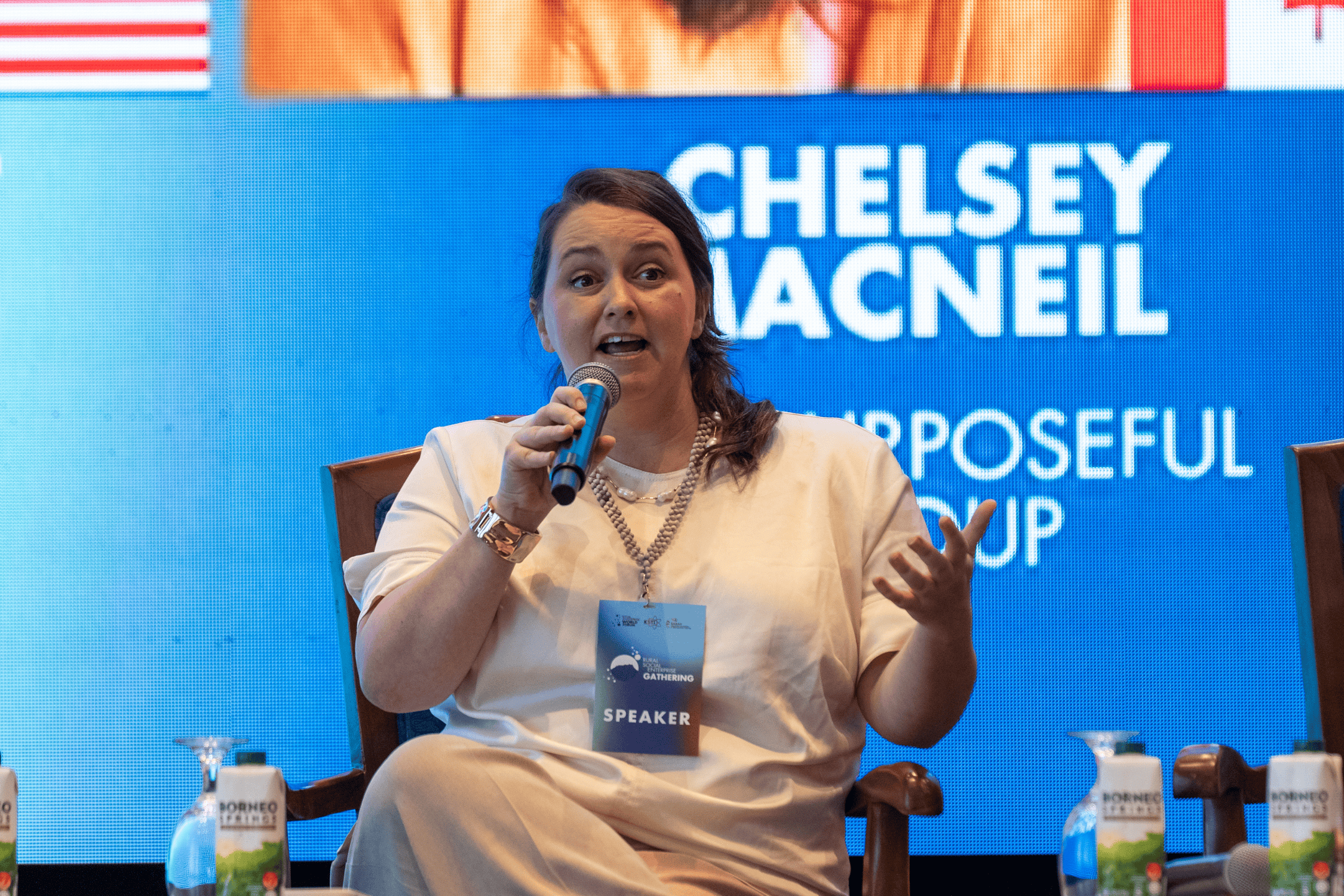
Chelsey MacNeil, CEO of Canadian social impact consulting firm the Purposeful Group, loves the community of Bonavista, Newfoundland, because they’ve been able to use social enterprise to leverage state government funding for improved infrastructure and services.
MacNeil shared the story of Bonavista during a session on fostering rural culture and heritage via tourism. The 2,000-strong community’s economy had been based on cod fishing until it was banned by the government in 1992 due to collapsing cod stocks.
At that point, the government tried to push a scheme to bring a large corporation’s factory to the area to create jobs. But the community pushed back, arguing their cultural heritage and historical buildings were the most valuable asset they had. It managed to convince the state government to allow the community to take ownership of those buildings and Bonavista now has a thriving economy built on tourism.
Having created a rural economic success story, the community has been able to push the state government to invest in crucial infrastructure and social systems in Bonavista, including hospitals, schools and roads. MacNeil celebrated the people of Bonavista as “rural renegades”.
The story illustrated the importance of community ownership of assets to rural populations, a theme supported by Matt Pfahlert, CEO of the Australian Centre for Rural Entrepreneurship (ACRE).
Pfahlert, drawing on three decades of experience in social enterprise, described community asset ownership as “catalytic”. He explained that the process of taking community ownership, and establishing the systems necessary to do so, bring to the table all the stakeholders necessary to build a prosperous rural locality, including residents, business leaders, government and financial institutions or lenders.
To ensure success of community buyback of an asset, communities need to be educated so that they thoroughly understand the aims and objectives, be it through local educators, media and networks. It is also essential to properly engage young people in the process to give them a sense of ownership buy-in.
Be a talent scout, not a helicopter
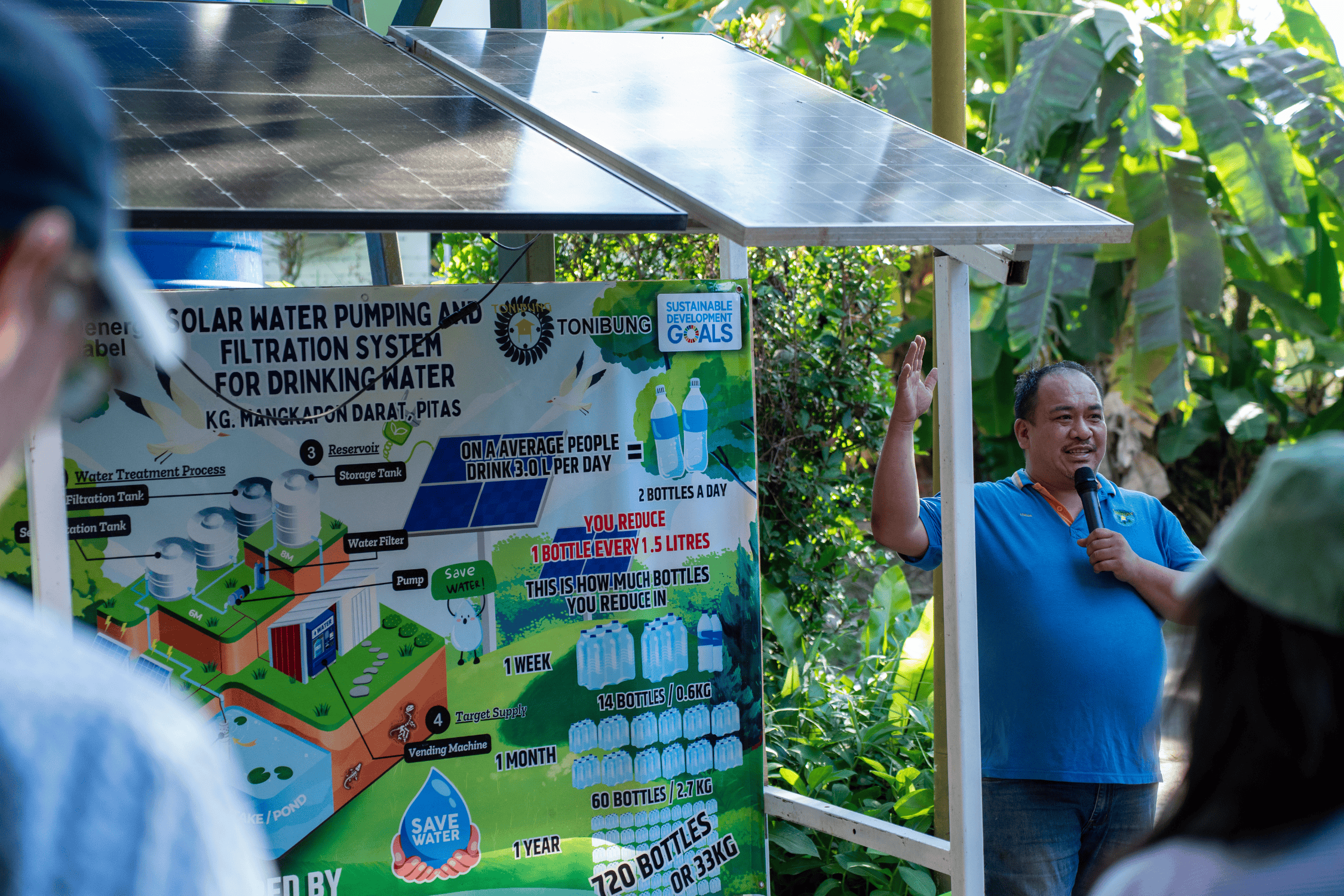
Alongside representatives of specific rural social enterprises, many delegates worked for support bodies for rural social enterprises or social enterprises which partner with rural communities.
That led to much discussion around how to partner with Indigenous and rural communities in a just way to co-create sustainable enterprises.
Adrian Lasimbang is the founder and technical director of Tonibung, a social enterprise in Sabah which Rural Social Enterprise Gathering delegates visited ahead of the conference. Tonibung, an Indigenous-founded social enterprise itself, provides sustainable technology, like water turbines, to deliver electricity to Indigenous and rural communities, as well as other technical solutions like solar-powered food dehydrators which enable produce to be stored for longer, and trains those communities in the maintenance of the technology.
Lasimbang likened unsustainable and unjust approaches to working with Indigenous and rural communities to arriving in a helicopter. He said: “When you have a helicopter, you come in, and all the leaves and plants will be blown to the side, and then you fly off.
“The worst part is all the things that were already on the ground are gone because of this helicopter and the community becomes much worse off than before. We really have to bear in mind that our [proposed] intervention might not be the thing that [the community] really needs, and the way we make our entrance is very important.”
Instead of the helicopter approach, Lasimbang and Tonibung focus on building trusting, long-term relationships and respecting Indigenous governance structures in rural communities to enable self-determination over technological development. Key to Tonibung’s work is delivering in-depth training in maintenance of any technology it installs in a community, to ensure the benefits delivered by that technology are sustainable.
The first role of artist manager is to do talent scouting: who are within the community that have the immense knowledge on the food biodiversity and food culture?
Helianti Hilman is founder of Javara Indigenous Indonesia, a food, biodiversity and heritage social enterprise. She compared supporting Indigenous entrepreneurs with her previous career as an entertainment lawyer and artist manager.
She said: “The first role of artist manager is to do talent scouting: who [in] the community [has] the immense knowledge on the food biodiversity and food culture, and can be the champion within the community and create a winning product or service? [Then] our role is to find a stage, either through the high street supermarket chain globally, or gastronomic events, to allow our artists to showcase what they have.”
Also speaking at the conference was Joji Pantoja, founder of Coffee for Peace Philippines, a social enterprise that uses coffee production to foster peace and provide economic opportunities in conflict-affected areas of Mindanao, Philippines.
Pantoja described Coffee for Peace’s six-month process which supports rural farmers to become "farmerpreneurs". The process results in the creation of individual brands, rather than community enterprises adopting the Coffee for Peace name.
“Coffee for Peace creates its own competitors. We wanted the farmers to be creating their own brand, which would be displayed at the Coffee for Peace shop and exported to other countries. Those brands have their stories, so you can see and trace this coffee you're drinking to this specific farmer and specific community where it is sourced,” she said.
Restoring rural self esteem through social enterprise
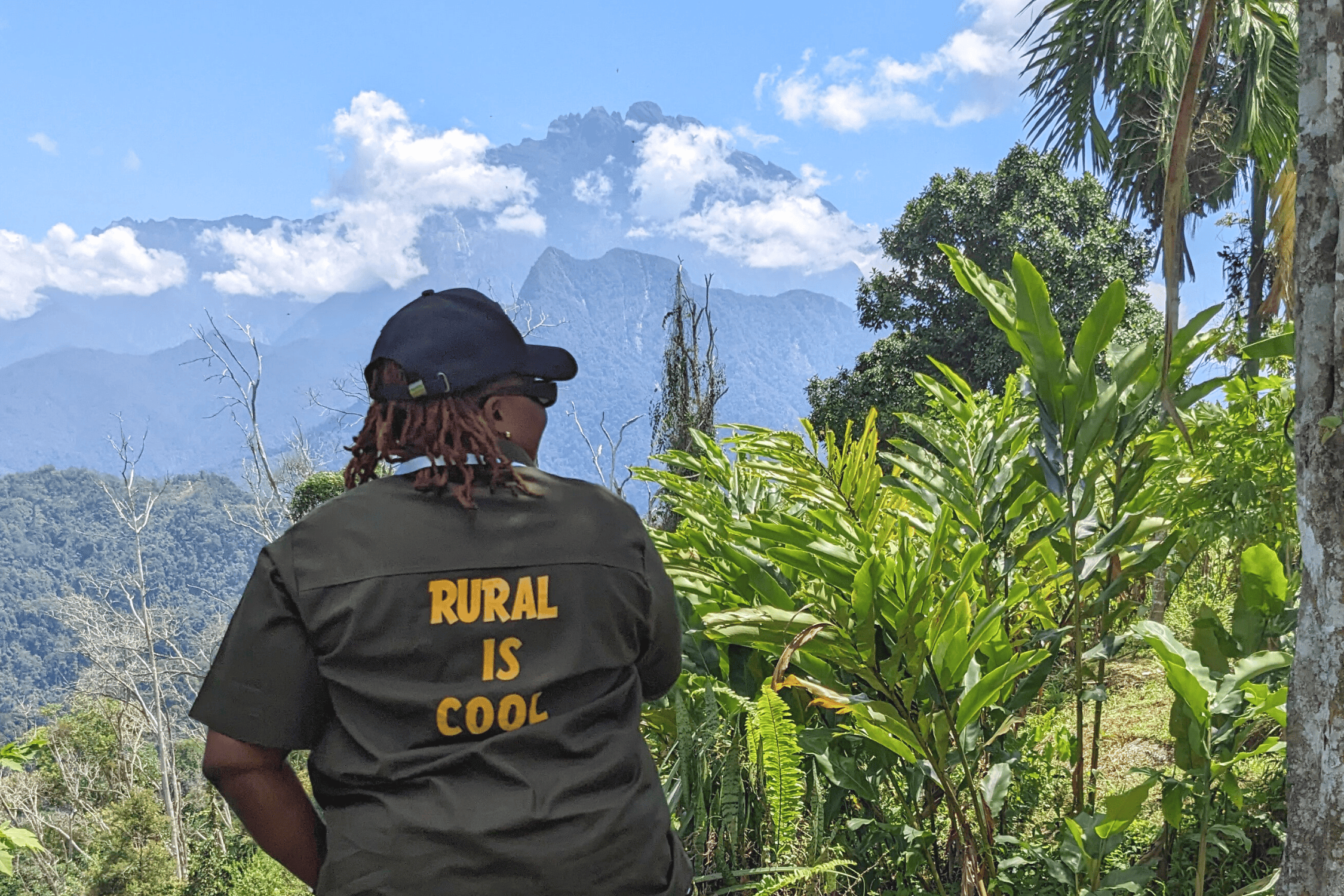
With “Rural is Cool” emblazoned across the back of her t-shirt, Tony Joy, founder of Durian Nigeria, a social enterprise which supports rural communities in Nigeria to use their local resources to create wealth, was a noticeable presence during the two days of social enterprise visits at the Rural Social Enterprise Gathering 2025.
During the conference, Joy shared her powerful life story, involving surviving abuse and homelessness, which she says echoes the feelings of marginalisation and shame she often encounters when first meeting rural communities.
She said: “I saw people who were feeling the same way. They didn't feel seen, they didn't feel heard. Most of the young people are told that they would not be able to do anything, and in the cultural context of some of the communities, for young ladies at 13, 14, 15, you're done with. They take you out of school and say ‘you're done with school’, and then you'll be pregnant, and then that's just the journey of your life.”
This sense of marginalisation is shared by others. Matt Pfahlert described how driving more than an hour away from a city in Australia – where more than 80% of the population lives in urban areas – “is like dropping off a cliff in terms of health, education, career opportunities, technology.”
We want to keep rural, rural. There's nothing wrong with our raw foods, there's nothing wrong with our raw fabrics, there's nothing wrong with our rural knowledge
Joy believes social enterprise can be a route to building self esteem and confidence within a community and restoring pride in their heritage and culture. “We want to keep rural, rural. There's nothing wrong with our raw foods, there's nothing wrong with our raw fabrics, there's nothing wrong with our rural knowledge,” she said.
Durian Nigeria’s approach involves working with communities to understand their Indigenous and traditional practices and knowledge and identifying opportunities to develop enterprises.
She said: “Every community has something unique about it. It could be what they plant, it could be the culture, it could be Indigenous knowledge. We don't identify anything outside what is original to a community.
“For instance, we work in cocoa communities…Most of the communities do not have production facilities for chocolate. So what they do is they break the [cocoa] pods, sell the seeds, and then you have the pods as waste. We show them how to use [the pods] to make the African black soap.”
Helianti Hilman explained that Javara Indigenous Indonesia works with communities to develop high-end products and experiences, not only because it is the most effective way to make profit in the market they are operating in, but also because of the impact it makes on the communities’ sense of self.
She said: “Most of these communities, they don't have self esteem. They feel the food of their culture is the food of the poor. We rebrand it as high-end, because we want to build pride and dignity.”
Does social enterprise need a rebrand?
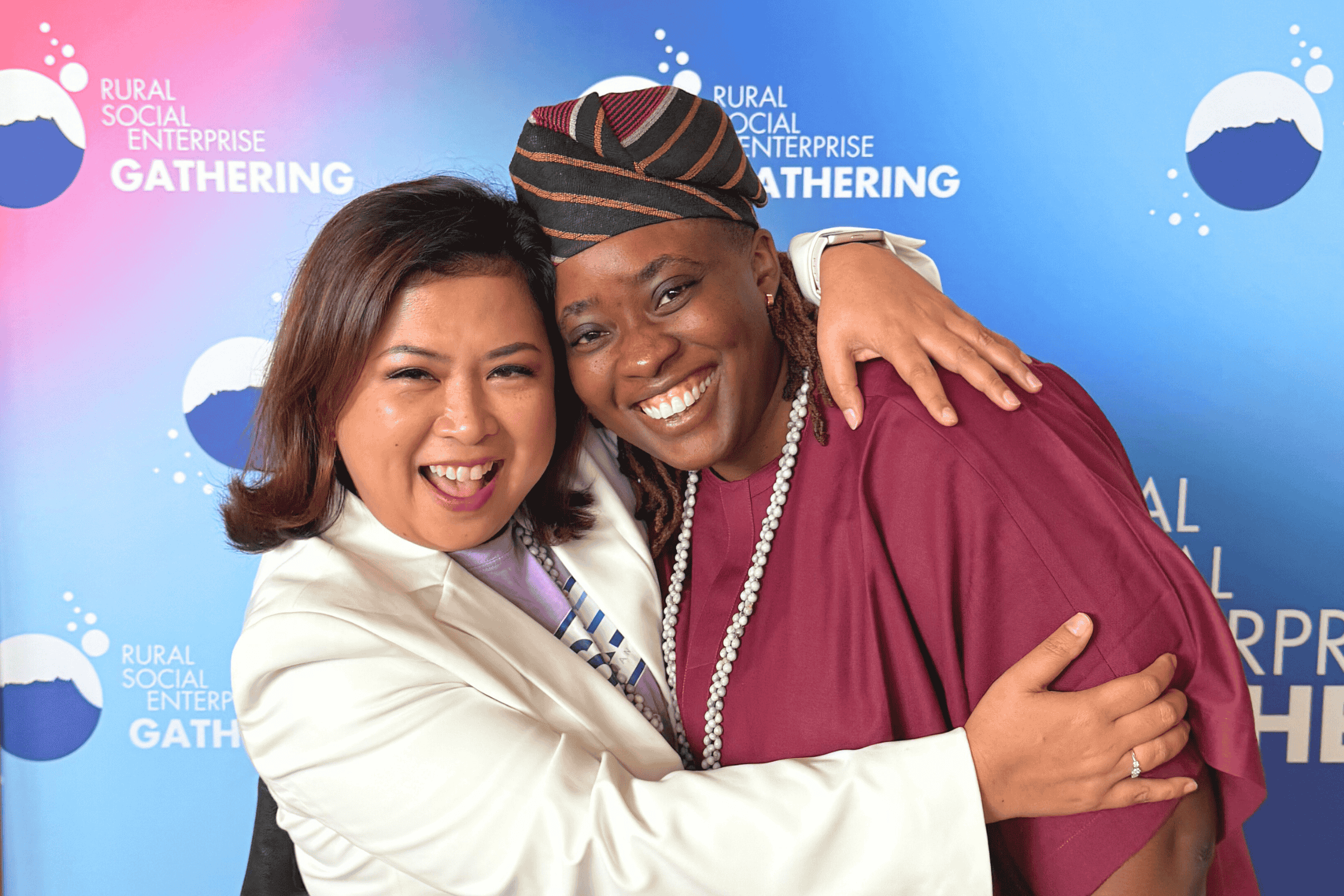
Rural populations across the world are struggling with ageing populations and depopulation driven by young people leaving their communities.
Across the conference, the idea circulated that social enterprises can play a role in tackling youth depopulation through digital storytelling.
The idea centres on enabling young members of a community to tell the stories of social enterprises through digital channels. Doing so will give young people a way to contribute to the success of their community by promoting the social enterprise on social media, while also getting recognition from their peers for authentic and interesting storytelling.
Wesley Ward is a freelance science writer and communications consultant involved with ACRE. He said young people in rural communities often have passion for their local areas, but sometimes don't know how to marry that with their skills.
Ward said: “I think that's where the opportunities are for youth…to be able to record, to tease out those stories and to [turn them into] something tangible. I think there’s a real opportunity in the broader sense of the youth being able to stay in their communities because they feel like they have something to offer and that they can bring forward to promote their communities.”
Alice Fogg is chief officer of Voluntary Action in Badenoch and Strathspey, a social enterprise and charity support organisation based in the Highlands of Scotland. She believes the social enterprise sector in Scotland needs a rebrand to demonstrate to young, rural-based people it can provide a nurturing and secure environment to launch businesses.
We need it to be sexy and we need it to be exciting. If social enterprise was a person, how would they present themselves?
“We need it to be sexy and we need it to be exciting. If social enterprise was a person, how would they present themselves? What vibe would they give off? I think that person would be resilient. I think they would be super fun. But I think that's not how we come across online.”
For Fogg, the statistics about the age of social entrepreneurs in Sabah were a source of inspiration. Shazrean Shah Saptu, assistant manager of innovation-driven entrepreneurship at SCENIC, said 60% of the 160 social enterprises in Sabah were founded by entrepreneurs aged 40 or under.
But while delegates may think social enterprise needs to change the way it is marketed, there was consensus that rural communities certainly don’t.
Viviantie Sarjuni is CEO of Institut Keusahawanan Negara (INSKEN), Malaysia’s national entrepreneurship support agency, and former CEO of SCENIC, who played a key role in bringing the Rural Social Enterprise Gathering to Sabah.
During the closing plenary session at the conference, Sarjuni urged the audience: “Don't be ashamed of the word rural”. After the event, Gerry Higgins told Pioneers Post the Rural Social Enterprise Network was adopting Tony Joy’s “rural is cool” slogan as its unofficial motto.
A closed-door Rural Social Enterprise Network members discussion took place on the day after the conference, with a focus on the Rural Social Enterprise Manifesto, published last year.
Higgins said the discussions reaffirmed the principles and recommendations made in the manifesto, giving Social Enterprise World Forum a mandate to focus on advocating for them at an international level over the course of 2025.
Top image: Rural Social Enterprise Gathering 2025 delegates visit Sabah-based social enterprise Tonibung (credit: SCENIC)
| Ready to invest in independent, solutions-based journalism?
Our paying members get unrestricted access to all our content, while helping to sustain our journalism. Plus, we’re an independently owned social enterprise, so joining our mission means you’re investing in the social economy. |


